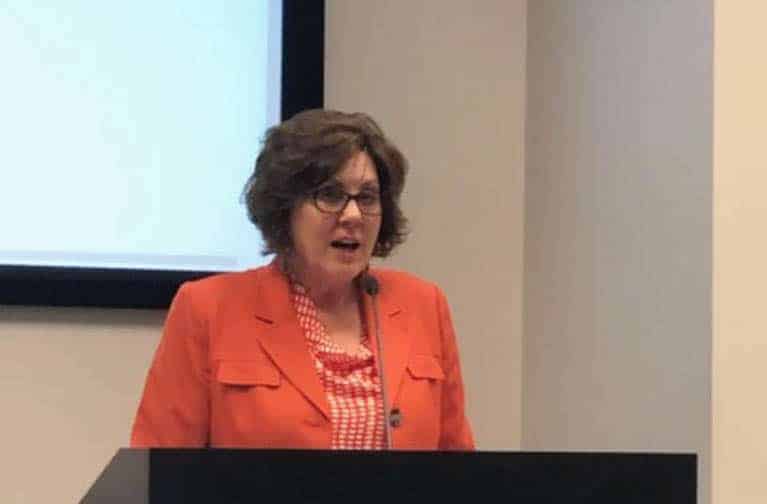

The Rowan-Salisbury School Board met on Monday and key among their agenda items was a presentation by School Superintendent Lynn Moody on the Renewal implementation process.
Rowan-Salisbury Schools was approved as a Renewal District by the General Assembly in 2018 for a five-year term, effective immediately upon approval. Renewal status gives the system charter-like flexibility to meet the needs of each school’s population in distinct fashions, while still meeting core state requirements, such as student absenteeism, annual state testing requirements and outcomes, and teacher and administrator turnover. While the system does not receive additional funding in Renewal status, it does have more lenience in how to utilize its existing funding.
North Carolina has not had a Renewal district to date, so identifying how to proceed is one of the basic tasks necessary before proceeding.
Moody identified four measures of success for the system as it identifies how to proceed: academic skills, unique life skills, interpersonal skills, and annual state requirements.
She then proposed 12 renewal steps for the school system to go through as they work to meet the individual needs of each of the 34 schools. The steps start with needs assessments and end with annual evaluations.
In the first six months of renewal status, the Board has already had challenges in agreeing to proposals to resolve school needs. While Renewal status itself seeks to address student needs on a school-by-school basis, board members have expressed reluctance to set a precedent by approving measures for individual schools.
“Charter schools have an advantage,” Moody stated. “Each charter school has a story, a compelling reason why parents should send their children to that school. Public schools, not so much. If you don’t have a message, a story, it’s a hard sell. We might offer, ‘in our school, all staff know every student’s name,’ or ‘in this school, every student works on his passion project every day.’”
Finally, Moody proposed two different process options for the board to consider: one more detailed proposal states that the board will review and provide feedback on all 34 school renewal plans and vote on each individually; the other, macro-level proposal states the board will set parameters and core requirements for renewal and delegates individual school review to district-level staff. Later, staff would provide the board with a high-level overview of the plans for approval.
The board was asked to identify which approach they’d like to use in identifying the path for each of the district’s 34 schools.
In other agenda items, Julie Morrow, assistant superintendent for curriculum, presented an e-learning concept for inclement weather days. Both online and offline avenues were presented, in deference to students who may not have internet access in the home. Teachers would indicate their office hours of availability for students who may have questions during e-learning. Those teachers who do not have internet in the home, or who have lost power due to the weather, would partner with teachers who do have internet access. Also included were “passion projects” for students to receive extra credit. Students will have five days after returning to school to complete inclement weather assignments. The board approved the plan with a teacher workday of January 22 set as a “dry run” of the plan.
Eisa Cox, executive director of programs, gave an update on SchooLinks, an app that assists middle and high school students in assessing college readiness, selecting colleges, and identifying what type of college best suits students. Moody laughingly called it a “match.com” for college. The tool may ask students, for example, if it would be important for teachers to know their names or for the school to have a football team. Guidance counselors have been trained on the tool. The board approved the purchase of the software earlier in the year, and its implementation is imminent.


